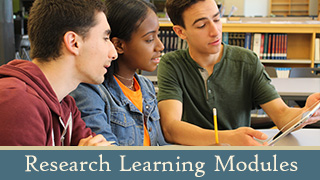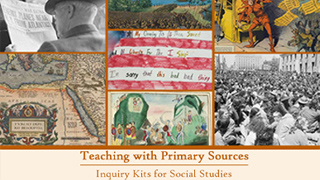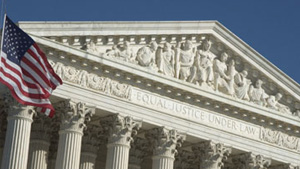Home — Learning Resources — High School — Social Studies
High School Social Studies
Explore our history and government digital activities, as well as our collection of literacy lessons for social studies.
Research Learning Modules
 Learn the research process through these twelve self-paced student modules. Each lesson guides you step-by-step as you practice important research skills. You will learn to define and analyze sources, how to write a solid thesis statement, and ultimately understand how to create a research project.
Learn the research process through these twelve self-paced student modules. Each lesson guides you step-by-step as you practice important research skills. You will learn to define and analyze sources, how to write a solid thesis statement, and ultimately understand how to create a research project.
> Go to Research Learning Modules
Teaching With Primary Sources Inquiry Kits
 Explore a collection of online social studies inquiry kits from Maryland Public Television and Maryland Humanities, including our newest collection of U.S. Government-themed inquiry kits.
Explore a collection of online social studies inquiry kits from Maryland Public Television and Maryland Humanities, including our newest collection of U.S. Government-themed inquiry kits.
> Go to Teaching With Primary Sources Inquiry Kits
Literacy Lessons in Social Studies
 In this collection of literacy lessons for social studies classes, students read primary and secondary historical texts to learn and practice literacy standards.
In this collection of literacy lessons for social studies classes, students read primary and secondary historical texts to learn and practice literacy standards.
> Go to Literacy Lessons in Social Studies
Other Resources
In this government-themed literacy activity, students analyze primary and secondary sources to write an argument defending one of three main ideas related to the Electoral College.
Teach students about the people, places and pivotal events surrounding the War of 1812 using lessons, interactives, primary source documents, and images.
Explore this website to learn about James Baker, a former United States Secretary of State, and how to apply his skills of negotiation and diplomacy.
In this interactive lesson, students explore why the Bill of Rights was added to the Constitution and its enduring impact on defining our rights.
In this interactive lesson, students explore the motivations for the Louisiana Purchase, as well as the terms of the purchase and its consequences.
In this interactive lesson, students assess how the Emancipation Proclamation expanded ideas of freedom and liberty and examine the antislavery debate that led to the proclamation.
In this interactive lesson, students will understand and explain the key provisions of the 13th, 14th and 15th Amendments to the U.S. Constitution, commonly referred to as the Reconstruction Amendments.
In this interactive lesson, students trace the causes and debates that led to the Spanish-American War, including “yellow journalism” press coverage, and President McKinley’s declaration of war.
In this interactive lesson, students examine how World War I affected the United States, France, Great Britain, and Germany and why it was such a challenge for Woodrow Wilson to orchestrate a just peace.
In this interactive lesson, students use primary sources to examine how and why propaganda was used by combatant nations with such powerful effect during World War II.
In this interactive lesson, students discover how World War II affected the lives of young people, at home and on the battlefield, in Europe and America, through virtual tours and primary source analysis.
In this interactive lesson, students consider how U.S. foreign policy changed in the aftermath of World War II, and analyze the philosophical, geopolitical, and economic factors that influenced these changes.
In this interactive lesson, students explore how the cultural and political changes that occurred in 1968 came to symbolize the 1960s as a decade of change in America.
In this interactive lesson, students explore the rich diversity within Latino culture and grow in their appreciation of how diversity can enrich society.
In this interactive lesson, students explore why tensions often exist between communities of color and the police and how tensions about policing might be addressed.
 Learn the research process through these twelve self-paced student modules. Each lesson guides you step-by-step as you practice important research skills. You will learn to define and analyze sources, how to write a solid thesis statement, and ultimately understand how to create a research project.
Learn the research process through these twelve self-paced student modules. Each lesson guides you step-by-step as you practice important research skills. You will learn to define and analyze sources, how to write a solid thesis statement, and ultimately understand how to create a research project. Explore a collection of online social studies inquiry kits from Maryland Public Television and Maryland Humanities, including our newest collection of U.S. Government-themed inquiry kits.
Explore a collection of online social studies inquiry kits from Maryland Public Television and Maryland Humanities, including our newest collection of U.S. Government-themed inquiry kits. In this collection of literacy lessons for social studies classes, students read primary and secondary historical texts to learn and practice literacy standards.
In this collection of literacy lessons for social studies classes, students read primary and secondary historical texts to learn and practice literacy standards.